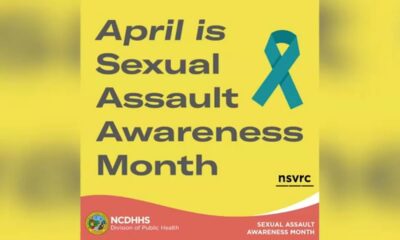News from the South - Alabama News Feed
Police Cracking Down on Drug Trafficking on I-65 | August 28, 2024 | News 19 at 5 p.m.
SUMMARY: The Priceville Police Department is intensifying its efforts to combat illegal drug trafficking, focusing on Interstate 65, a known hotspot for drug-related crime. Police Chief Jerry Home reports that their proactive measures have led to the seizure of over a million dollars worth of drugs and around $50,000 in cash in recent months. Multiple traffic stops have uncovered significant quantities of narcotics. Chief Home emphasizes that removing drugs like fentanyl from the interstate is crucial for safeguarding lives. This summer alone has seen more than a dozen arrests, despite the department’s limited manpower of just nine officers.

The Priceville Police Department (PPD) sits just off I-65 in Morgan County. With a birds-eye view of the interstate, it’s no surprise that the department is finding success in its efforts to combat drug trafficking.
News 19 is North Alabama’s News Leader! We are the CBS affiliate in North Alabama and the Tennessee Valley since November 28, 1963.
https://whnt.com/
https://www.facebook.com/whntnews19
https://www.instagram.com/whntnews19/
https://twitter.com/whnt
News from the South - Alabama News Feed
Researchers say moms and babies are ‘going to get hurt’ by federal pregnancy data team cuts
by Kelcie Moseley-Morris, Alabama Reflector
April 26, 2025
In the remote villages of Alaska where social worker Laura Norton-Cruz works to improve maternal and infant health, there are no hospitals.
Pregnant patients, almost all of whom are Alaska Native, often fly on small 10-seat planes to the region’s larger hub community of Kotzebue. While some give birth there, many more then take a jet out of the Northwest Arctic region to Anchorage, the state’s largest city. By the time they fly back to Kotzebue for their six-week checkup, a high percentage have stopped breastfeeding because of a lack of ongoing supports.
Norton-Cruz knows that because of data collected by Alaska’s Pregnancy Risk Assessment Monitoring System (PRAMS)— a grantee of the U.S. Centers for Disease Control and Prevention’s PRAMS program, started in 1987 in an effort to reduce infant morbidity and mortality.
But earlier this month, the Trump administration cut the federal program, its 17-member team and more workers in the Division of Reproductive Health as part of sweeping layoffs within the U.S. Department of Health and Human Services.
Rita Hamad, associate professor at Harvard School of Public Health, said PRAMS helps researchers understand what kinds of state policies are improving or harming child health.
“I can’t overemphasize what an important dataset this is and how unique it is to really show national trends and help us try to understand how to optimize the health of moms and young kids,” Hamad said.
Social worker and lactation counselor Laura Norton-Cruz facilitated a peer breastfeeding counselor program with mothers from villages in the Kotzebue, Alaska region. The project was made possible in part because of PRAMS data. (Photo by Angie Gavin)
PRAMS does not ask abortion-related questions, but some anti-abortion groups still try to make a connection.
“The cuts seem appropriate given all the bias in choosing topics and analyzing data, but if Pregnancy Risk Assessment Monitoring System wishes to justify their reporting, point to the study that has most helped women and their children, born and preborn, survive and thrive,’’ Kristi Hamrick, vice president of media and policy at Students for Life of America, told States Newsroom in an email.
Over the past two years, Norton-Cruz used Alaska’s PRAMS data to identify low breastfeeding rates in the region, connect with people in the villages and interview them about what would help them continue to breastfeed. What they wanted, she said, was a peer in the community who understood the culture — so that’s what she’s been working to set up through federal programs and funding that is now uncertain.
Norton-Cruz also uses responses from PRAMS surveys to identify risk factors and interventions that can help prevent domestic and sexual violence and childhood trauma, particularly in rural communities, where the rates of domestic violence and maternal death are high.
“PRAMS data not being available, I believe, is going to kill mothers and babies,” she said. “And it’s going to result in worse health for infants.”
New York City grant is renewed, but data collection is paused
Individual states collect and report their own data, and the CDC team was responsible for aggregating it into one national picture. Some localities, such as New York City, maintain a full dashboard of data that can be explored by year and survey question. The most recent fully published data is from 2022 and shows responses by region, marital status, Medicaid status and more.
For instance, 2022 data showed women on Medicaid experienced depressive symptoms at a higher rate after giving birth than those not on Medicaid. It also showed that a much higher percentage of women not on Medicaid reported putting their babies on their backs to sleep, the recommended method for safe sleep — 63% of women on Medicaid reported following that method, versus 85% not on Medicaid.
Hamad said PRAMS is the only national survey dataset dedicated to pregnancy and the postpartum period. Her team has studied the outcomes of the Women, Infants, and Children food assistance program, and how state paid family leave policies have affected rates of postpartum depression.
“This survey has been going on for decades and recruits people from almost all states,’’ she said. “There’s really no other dataset that we can use to look at the effects of state and federal policies on infant health and postpartum women.”
Under Secretary Robert F. Kennedy Jr., Health and Human Services laid off about 10,000 employees as part of a restructuring effort in early April. The overhaul is part of the “Make America Healthy Again” initiative, and the agency said it focused cuts on redundant or unnecessary administrative positions. It rescinded some of the firings in the weeks since, with Kennedy telling reporters that some were “mistakes.” It’s unclear if any of those hired back were PRAMS employees.
The cuts, Hamad said, also run counter to the administration’s stated goals of wanting to protect women, children and families.
“The government needs this data to accomplish what it says it wants to do, and it’s not going to be able to do that now,” she said.
The funding for local PRAMS programs seems to be unaffected for now. Spokespersons for health department teams in Alaska, New Mexico, Oklahoma and Kansas told States Newsroom they have not had any layoffs or changes to their grants, but the funding for this fiscal year ends on April 30. Forty-six states, along with D.C., New York City and two U.S. territories, participate in the program. According to the CDC, those jurisdictions represent 81% of all live births in the United States.
New York State Department of Health spokesperson Danielle De Souza told States Newsroom in an email their program has received another year of funding that begins May 1 and supports one full-time and two part-time staffers. But without the assistance of the national CDC team to compile, clean, and prepare the data, maintain the data collection platform and establish standards, De Souza said their state-level operations are on pause.
“We remain hopeful that the data collection platform will be fully reactivated, and that CDC coordination of PRAMS will resume,” De Souza said. “The department is assessing the challenges and feasibility of continuing operations if that does not occur.”
Hamad said some states might be willing to allocate state dollars to the programs to keep them running, but the states that have some of the worst maternal and infant health outcomes — such as Arkansas, Mississippi and Alabama — are the least likely to have the political will to do that. And it would still make the data less robust and valuable than it was before.
“If one state is asking about how often you breastfed in the last week, and another one is asking about the last month, then we won’t have comparable data across states,” she said.
Project 2025, anti-abortion groups have criticized CDC data collection
Jacqueline Wolf, professor emeritus of social medicine at Ohio University, has studied the history of breastfeeding and childbirth practices and said the rates of maternal and infant death were high in the late 19th and early 20th centuries. For every breastfed baby, 15 raw milk-fed babies died. Wolf said 13% of babies didn’t live to their 1st birthday, and more than half were dying from diarrhea.
To help determine what was causing those deaths and prevent it, public health specialists created detailed forms and collected information from families about a mother’s age, the parents’ occupations, race, income level, household conditions, and how the babies were fed.
Researchers at that time were able to determine that babies who weren’t breastfed were getting sick from unpasteurized milk and tainted water supply, and more than half were dying from diarrhea. Through public health reforms, like requiring cow’s milk to be pasteurized, sold in individual sterile bottles and kept cold during shipping, infant death rates dropped, Wolf said.
Health officials also increased education campaigns around the issue. Today, PRAMS uses survey data the same way.
“These were detectives,” Wolf said. “That’s what public health really is, detective work, which is why this data is so important.”
Project 2025, the blueprint document of directives for the next Republican presidential administration crafted by conservative group Heritage Foundation in 2024 and closely followed by President Donald Trump and his cabinet, details plans for the CDC’s data collection efforts. Page 453 of the 900-page document, written by Heritage Foundation executive Roger Severino says it’s proper for the CDC to collect and publish data related to disease and injury, but the agency should not make public health recommendations and policies based on that data because it is “an inescapably political function.”
The agency should be separated into two, Severino wrote, with one agency responsible for public health with a “severely confined ability to make policy recommendations.”
“The CDC can and should make assessments as to the health costs and benefits of health interventions, but it has limited to no capacity to measure the social costs or benefits they may entail,” the document says.
On page 455, Severino says the CDC should also eliminate programs and projects that “do not respect human life” and undermine family formation. It does not name PRAMS as a program that does this, but says the agency should ensure it is not promoting abortion as health care.
Hamrick, of Students for Life of America, told States Newsroom in an email that because there is no national abortion reporting act that tracks outcomes for women who end a pregnancy, assumptions in current reports “taint the outcomes.” Hamrick said the CDC has done a poor job of getting a complete picture of pregnancy risks, including the risk of preterm birth after having an abortion.
“Taxpayers don’t have money to waste on purely political messaging,” Hamrick said.
Without data, researcher worries policy recommendations will be easier to dismiss
If researchers like Laura Norton-Cruz don’t have PRAMS data moving forward, she said they will be operating in the dark in many ways, using anecdotal and clinical data that is not as reliable and accurate as the anonymous surveying. That can make it more difficult to push for funding and program changes from lawmakers as well.
“Moms need safe housing and domestic violence resources, moms need health care and breastfeeding support, and if we can’t show that, then they can justify not providing those things, knowing that those most affected by not having those things will be groups who are already marginalized,” Norton-Cruz said.
While HHS did not cite the administration’s ongoing efforts to remove any content from the federal government that acknowledges disparities in race or gender as its motivation for cutting the PRAMS team, researchers who spoke with States Newsroom think that could be the underlying reason.
Wolf said race matters in data collection just as much as household economics or class, and it is just as relevant today as it was when PRAMS was established, as maternal death rates for Black women and other women of color are disproportionately high in a number of states. Those states are also often the poorest and have higher infant mortality rates.
Wolf recalled that during Trump’s first term in 2020, the first year of COVID, the administration ordered the CDC to stop publishing public data about the pandemic. She sees a parallel to today.
“I fear that is exactly what’s going on with PRAMS,” she said. “To pretend like you don’t have the data, so the problem doesn’t exist, is just about the worst response you can think of, because more and more mothers and babies are going to get hurt.”
States Newsroom state outlet reporters Anna Kaminski, Danielle Prokop and Emma Murphy contributed to this report.
Alabama Reflector is part of States Newsroom, a nonprofit news network supported by grants and a coalition of donors as a 501c(3) public charity. Alabama Reflector maintains editorial independence. Contact Editor Brian Lyman for questions: info@alabamareflector.com.
The post Researchers say moms and babies are ‘going to get hurt’ by federal pregnancy data team cuts appeared first on alabamareflector.com
Note: The following A.I. based commentary is not part of the original article, reproduced above, but is offered in the hopes that it will promote greater media literacy and critical thinking, by making any potential bias more visible to the reader –Staff Editor.
Political Bias Rating: Left-Leaning
The content presents a perspective that emphasizes the importance of public health data, particularly in the context of maternal and infant health, and criticizes the cuts made by the Trump administration to the Pregnancy Risk Assessment Monitoring System (PRAMS). It highlights the negative impact these cuts could have on vulnerable communities, especially Alaska Natives. The tone is concerned and urgent, focusing on the need for comprehensive data to support health initiatives.
While it acknowledges the perspective of critics from anti-abortion groups, the overall framing suggests a defense of public health initiatives often championed by more progressive and left-leaning agendas. The emphasis on systemic inequities regarding race and gender also aligns with a left-leaning viewpoint that advocates for social justice and equity in healthcare access.
News from the South - Alabama News Feed
Alabama Senate passes bill overhauling Birmingham Water Works Board
by Alander Rocha, Alabama Reflector
April 25, 2025
A bill significantly restructuring the governance of large municipal water systems sailed through the Alabama Senate Thursday.
SB 330, sponsored by Sen. Dan Roberts, R-Mountain Brook, is broadly worded but effectively targets the Birmingham Water Works Board (BWWB). The legislation overcame potential resistance after last-minute changes that expanded the proposed regional board.
“I think we have the makings of a great water system here with what we’re doing … we’re after a board whose goal is to work together, to provide true, true loyalty to the customer base, not to anyone else,” Roberts said after the bill’s passage.
GET THE MORNING HEADLINES.
The bill applies to municipal water works boards that serve customers across four or more counties beyond the one where the authorizing city is located. It mandates converting such entities into regional boards; establishing new rules for board member appointments, qualifications and terms; implementing stricter ethics and financial reporting requirements and outlining specific board duties.
Roberts said the changes are necessary for competent management and to prevent operational failures.
“We’re losing 50% of the water that we pump that’s potable. That’s so far outside what is normative across the country. The replacement of pipes is probably responsible for some of this, but we’re spending money on so many other things than showing a fiduciary responsibility to the customer base,” Roberts said.
Changes to the BWWB have drawn strong opposition from Democrats in the Jefferson County delegation, who have filibustered similar pieces of legislation over the years over concerns that Birmingham and Jefferson County, the BWWB’s largest customers, would lose power over water decisions to suburban counties. Democrats have also noted that the changes would take power from Birmingham, which is 67% Black, and shift it to majority-white suburban counties.
Sen. Rodger Smitherman, D-Birmingham, who has led opposition to BWWB changes, declined to comment after the bill passed, saying that he’ll “talk about it once the governor signs it.”
Roberts said the changes came “after hard negotiations for several hours yesterday until late last night, and then again this morning,” which led to adding two additional members. Roberts said he preferred a board of five members because it would be easier “to get them pulling in the same direction.”
“We sat down as a Jefferson County delegation and hammered it out in a back room of what it would take to get this bill to pass without creating lots of problems for the rest of our colleagues here in the Senate and the House,” Roberts said.
The first amendment expanded the proposed board from five members to seven, adding one director appointed by the Governor and another by the governing body of the authorizing municipality, which would be the Birmingham City Council. Both appointees would have to live in Jefferson County. The second amendment requires the new regional board to include the authorizing municipality’s name, Birmingham, in its official title.
The bill specifies that certain board positions require financial, engineering, or general business backgrounds and sets initial staggered terms before transitioning to five-year terms, with a limit of two full terms. Directors will receive $2,000 per month plus expenses.
Frank E. Adams, a spokesperson for Birmingham Water Works Board (BWWB), said in a statement that despite amendments adding local appointees, the board strongly opposes the bill and sees it as a “hostile takeover by outside interests.”
“BWWB’s daily focus is continuing to make improvements to our customer service, infrastructure and the overall operations of the system. We have made significant improvement in those areas over the last few months and SB 330 limits that progress,” Adams said in the statement.
Board leaders previously indicated that operations are improving, according to al.com, and that monthly billing errors have been reduced to 500, down from 10,000.
The bill now moves to the Alabama House of Representatives for consideration. House Speaker Nathaniel Ledbetter, R-Rainsville, said the legislation will be a priority in the last few days of session.
YOU MAKE OUR WORK POSSIBLE.
Alabama Reflector is part of States Newsroom, a nonprofit news network supported by grants and a coalition of donors as a 501c(3) public charity. Alabama Reflector maintains editorial independence. Contact Editor Brian Lyman for questions: info@alabamareflector.com.
The post Alabama Senate passes bill overhauling Birmingham Water Works Board appeared first on alabamareflector.com
Note: The following A.I. based commentary is not part of the original article, reproduced above, but is offered in the hopes that it will promote greater media literacy and critical thinking, by making any potential bias more visible to the reader –Staff Editor.
Political Bias Rating: Center-Right
The content discusses a recent legislative development in Alabama regarding municipal water governance, particularly focusing on a bill that restructures the Birmingham Water Works Board. The bill is sponsored by Republican Senator Dan Roberts and is framed in a positive light, emphasizing the goals of improved management and customer service. While the article does highlight opposition from Democratic lawmakers and their concerns regarding racial and regional equity, the overall tone appears to support the Republican-led initiative. The framing of the issues at hand suggests a predominance of conservative viewpoints surrounding the governance of public utilities, which aligns with Center-Right political perspectives.
News from the South - Alabama News Feed
Proposed Alabama drag ban could impact high school theater productions
by Anna Barrett, Alabama Reflector
April 24, 2025
The Alabama House of Representatives passed a bill last week that would ban drag performances in schools and public libraries.
But it could also impact theater productions statewide.
HB 67, sponsored by Rep. Scott Stadthagen, R-Hartselle, defines drag performances as “a performance in which a performer exhibits a sex identity that is different from the sex assigned to the performer at birth using clothing, makeup, or other physical markers.”
According to the Alabama Educational Theatre Association (ALEdTA), with fewer boys participating in theater in high school, girls often play boys’ roles to fill the cast. The association said the legislation could impact school theater productions.
“We all know that in the current environment where boys are not participating as much in theatre; this will have a negative impact on educational theatre,” ALEdTA wrote in a Facebook post Monday.
Historically, the opposite was true. In Ancient Greece, women were considered inferior to men and unfit for the stage, so female roles were played by men. The same was true in the Elizabethan era for plays by William Shakespeare. Premature boys often played female roles because of women’s limited social status.
The association is calling on its members to advocate for an amendment to the legislation in the Alabama Senate that would exempt theater productions from the restriction on drag performances. The association provided a letter template on the post for its members to send to their senator.
“This bill without needed amendments will force teachers to provide less performance opportunities for students. It will also heavily reduce the plays and musicals that we can perform in Alabama,” the letter said.
Stadthagen said in an interview Wednesday the legislation was not meant to impact theater and that he is working on an amendment for the Senate to make that explicit.
“It does not pertain to that at all,” he said. “The intent is not to harm theater or anything like that. The intent, of course, is to eliminate drag.”
Huntsville High School this fall planned to stage “Peter and the Starcatcher,” a Tony-award winning play based on the backstory of Peter Pan but switched productions due to the possible implications of the legislation.
“This change was made thoughtfully and early in the planning process before casting occurred to ensure the production aligns with any legal and logistical considerations that may arise,” Craig Williams, a spokesperson for the school system, wrote in an email Wednesday.
Stadthagen said in an interview Wednesday that he had not heard of any theater productions being cancelled and said that was not necessary.
“They don’t need to be cancelling anything at all,” he said. “They have nothing to worry about, I promise you.”
The bill awaits consideration from the Senate Education Policy Committee, which did not have its regularly scheduled meeting on Wednesday.
YOU MAKE OUR WORK POSSIBLE.
Alabama Reflector is part of States Newsroom, a nonprofit news network supported by grants and a coalition of donors as a 501c(3) public charity. Alabama Reflector maintains editorial independence. Contact Editor Brian Lyman for questions: info@alabamareflector.com.
The post Proposed Alabama drag ban could impact high school theater productions appeared first on alabamareflector.com
Note: The following A.I. based commentary is not part of the original article, reproduced above, but is offered in the hopes that it will promote greater media literacy and critical thinking, by making any potential bias more visible to the reader –Staff Editor.
Political Bias Rating: Center-Right
The content presents a discussion surrounding a bill proposed by Alabama House Minority Leader Scott Stadthagen, a Republican. It focuses on legislation to ban drag performances in schools and libraries, which reflects current cultural and political debates often associated with conservative views, particularly around identity and expression. While the article reports factual information about the proposed bill, it also features concerns from organizations like the Alabama Educational Theatre Association, illustrating the potential negative impact on theater productions.
The use of terms like "to eliminate drag" and the emphasis on the implications of the legislation suggest a framing that aligns with conservative perspectives on gender and performance art. However, the inclusion of dissenting opinions, such as those from theater advocates, and the detail that Stadthagen is considering amendments to protect theater productions, adds a moderating voice, indicating a more nuanced center-right position rather than a rigid far-right stance. Overall, the content reflects the complexities of political discourse around cultural issues, with a lean towards conservative viewpoints.
-

 News from the South - Florida News Feed6 days ago
News from the South - Florida News Feed6 days agoJim talks with Rep. Robert Andrade about his investigation into the Hope Florida Foundation
-

 News from the South - Alabama News Feed5 days ago
News from the South - Alabama News Feed5 days agoPrayer Vigil Held for Ronald Dumas Jr., Family Continues to Pray for His Return | April 21, 2025 | N
-

 Mississippi Today5 days ago
Mississippi Today5 days ago‘Trainwreck on the horizon’: The costly pains of Mississippi’s small water and sewer systems
-

 News from the South - Texas News Feed5 days ago
News from the South - Texas News Feed5 days agoMeteorologist Chita Craft is tracking a Severe Thunderstorm Warning that's in effect now
-

 News from the South - Florida News Feed4 days ago
News from the South - Florida News Feed4 days agoTrump touts manufacturing while undercutting state efforts to help factories
-

 News from the South - Arkansas News Feed6 days ago
News from the South - Arkansas News Feed6 days agoAs country grows more polarized, America needs unity, the ‘Oklahoma Standard,’ Bill Clinton says
-

 News from the South - Virginia News Feed5 days ago
News from the South - Virginia News Feed5 days agoTaking video of military bases using drones could be outlawed | Virginia
-

 News from the South - Texas News Feed7 days ago
News from the South - Texas News Feed7 days agoNo. 3 Texas walks off No. 9 LSU again to capture crucial SEC softball series







































